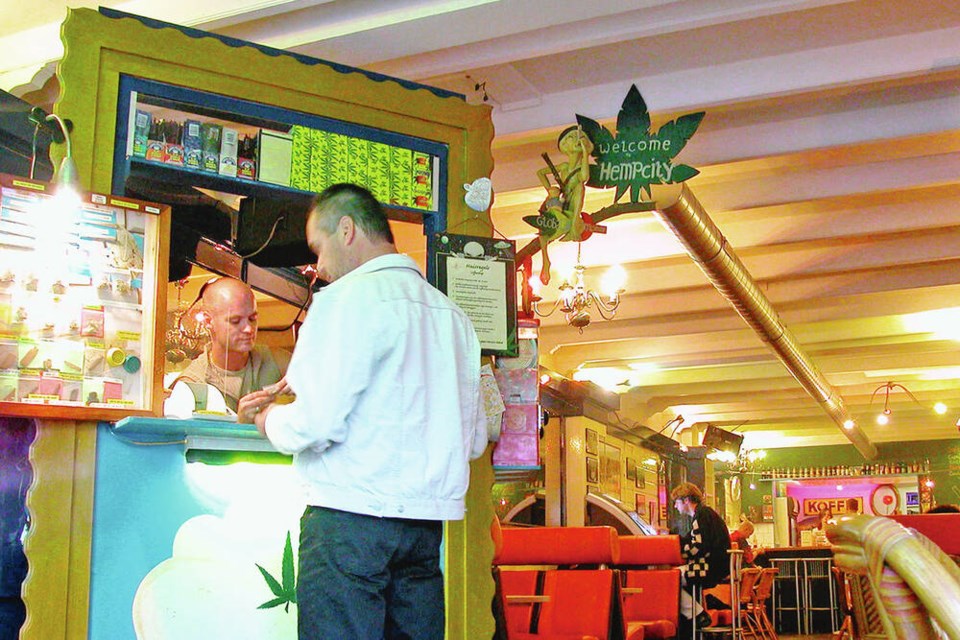Until European travel becomes fully open to North Americans, here’s a reminder of the fun that awaits us in Europe.
Amsterdam is a laboratory of progressive living, bottled inside Europe’s finest 17th-century city. Like Venice, this city is a patchwork quilt of elegant architecture and canal-bordered islands anchored upon millions of wooden pilings. But unlike its dwelling-in-the-past, canal-filled cousin, Amsterdam sees itself as a city of the future, built on good living, cosy cafés, great art, street-corner jazz and a persistent spirit of live-and-let-live.
During its Golden Age in the 1600s, Amsterdam was the world’s richest city, an international sea-trading port, and a cradle of capitalism. Wealthy burghers built a planned city of tree-shaded canals lined with townhouses topped with fancy gables. The atmosphere they created attracted a high-energy mix of humanity. Immigrants, Jews, outcasts, and political rebels were drawn here by its tolerant atmosphere. Sailors — so famously hard-living and rowdy — were needed to man the vast fleet of merchant ships. And painters, including a young Rembrandt, found work capturing that atmosphere on canvas.
I approach Amsterdam as an ethnologist observing a unique culture. A stroll through any neighborhood is rewarded with slice-of-life scenes that could rarely be found elsewhere. Carillons chime from church towers in neighbourhoods where sex is sold in red-lit windows. Young professionals smoke pot with impunity next to old ladies in bonnets selling flowers. Each block has a quirky and informal custom of neighbours looking out for neighbours, where an elderly man feels safe in his home knowing he’s being watched over by the sex workers next door.
Prostitution has been legal since the 1980s (although still forbidden on the street). The women are often entrepreneurs, running their own businesses and paying taxes. Women usually rent their space for eight-hour shifts. A good spot costs $150 US for a day shift and $250 for an evening. Popular prostitutes charge $50–70 for a 20-minute visit. Many belong to a union called the Red Thread.
The rooms look tiny from the street, but most are just display windows, opening onto a room behind or upstairs with a bed, a sink, and little else. Prostitutes are required to keep their premises hygienic, avoid minors, and make sure their clients use condoms. If a prostitute has a dangerous client, she pushes her emergency button and is rescued not by a pimp, but by the police.
The Dutch are a handsome people — tall, healthy and with good posture. They’re open, honest, refreshingly blunt, and ready to laugh. As connoisseurs of world culture, they appreciate Rembrandt paintings, Indonesian food, and the latest French films, but with a down-to-earth, blue-jeans attitude.
While smoking tobacco is not allowed indoors, the Dutch seem to smoke more cigarettes than anyone in Europe. Yet somehow, they are among the healthiest people in the world. Trim and wiry Dutch seniors sip beers, have fun blowing smoke rings, and ask me why Americans have a love affair with guns and kill themselves with Big Macs.
While the Dutch smoke a lot of tobacco, they smoke less marijuana than the European average. Hard drugs are illegal, but a joint causes about as much excitement here as a bottle of beer. Following an ethic of pragmatic harm reduction rather than legislating morality and pushing incarceration, the government allows the retail sale of pot. Throughout Amsterdam, you’ll see “coffeeshops” — pubs selling marijuana — with menus that look like the inventory of a drug bust.
Most of downtown Amsterdam’s coffeeshops feel grungy and foreboding to North American travellers who aren’t part of the youth-hostel crowd. But the places in local neighbourhoods and small towns around the countryside feel much more inviting to people without piercings and tattoos.
Paradox is the most gezellig (cosy) coffeeshop I’ve found in Amsterdam — a mellow, graceful place. The managers, Ludo and Wiljan, and their staff are patient with descriptions. With each visit, they happily walk me through their menu. The juice is fresh, the music is easy and the neighbourhood is charming.
It has become a ritual for me now to drop by Paradox and check in with Ludo and Wiljan with each visit to Amsterdam.
I grab a wicker chair just outside their door. Framed in the jungle of lush vines that decorates the storefront, I sit and observe the metabolism of the neighbourhood.
I think about how challenging societal norms — with a pinch of shock here and a dash of tolerance there — leads to progress. I’m grateful that this city’s bold experiment in freedom continues.
— This article was adapted from Rick’s new book, For the Love of Europe.
Rick Steves (ricksteves.com) writes European guidebooks, hosts travel shows on U.S. public TV and radio, and organizes European tours. You can email Rick at [email protected] and follow his blog on Facebook.



